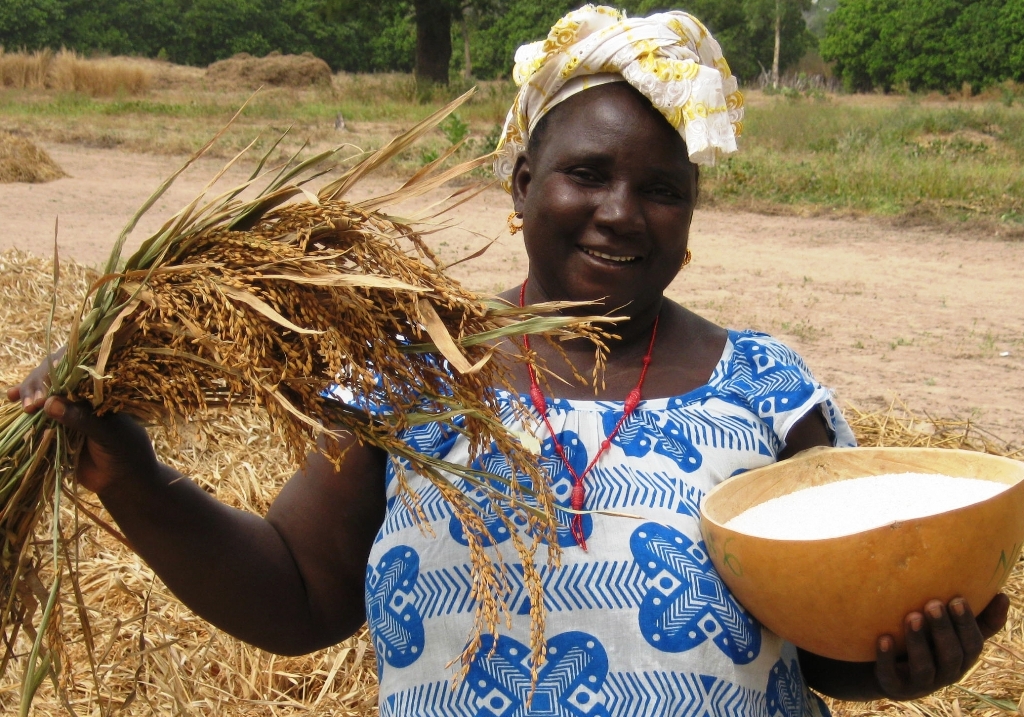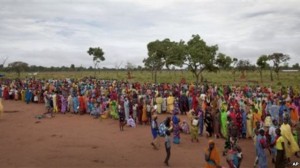
Event Review: Food Security in Senegal
 On June 1, 2013, the Institute for Current World Affairs (ICWA) held its Semi-Annual Meeting & Symposium, in which the topics included farming and food security in Senegal and broader implications for the current crisis in the Sahel region. The panel proceeded to include issues regarding climate change, human security, and migration as factors in worsening the regional crisis.
On June 1, 2013, the Institute for Current World Affairs (ICWA) held its Semi-Annual Meeting & Symposium, in which the topics included farming and food security in Senegal and broader implications for the current crisis in the Sahel region. The panel proceeded to include issues regarding climate change, human security, and migration as factors in worsening the regional crisis.
The event began with a presentation by Jori Lewis, a current fellow at ICWA focusing on West Africa. She opened by talking about her time living in Dakar, Senegal from January 2011 to January 2013 and about investigating food security issues, specifically regarding the production of millet, rice, and peanuts. Lewis discussed how local food norms in Senegal are currently clashing with food availability due to changes in Senegal’s climate.
Situated on the western tip of Africa, the Atlantic Ocean borders Senegal to its west, and the Sahel region to the north and to the east. The average temperature of Senegal increased by 0.9ºC since 1975 and the amount of farmland per person is low and steadily declining. Rainfall in Senegal also remains 15% below the decadal average between 1920 and 1969, which has worsened the current drought.
To make matters worse, consumer taste in Senegal is changing with more people beginning to prefer rice over millet due to an association between millet and lower economic status. This is a problem in a country that does not possess large water resources as rice is significantly more water-intensive compared to millet, which is a hardy, drought-resistant crop. The 2011/2012 h arvest season saw a 36% reduction in total crop production because of decreased rainfall.
Less  food production may be creating an opening for Islamist militants to take root in the Sahel and Maghreb. The Islamist presence has increased in Mali in recent years, primarily due to the perceived incompetency of the government. Panelist Bruce Whitehouse of Lehigh University commented that groups such as Al-Qaeda in the Islamic Maghreb (AQIM) provide food to local Malians since the government cannot provide these basic human resources. With the current drought, terrorist organizations may be benefiting by providing this service.
food production may be creating an opening for Islamist militants to take root in the Sahel and Maghreb. The Islamist presence has increased in Mali in recent years, primarily due to the perceived incompetency of the government. Panelist Bruce Whitehouse of Lehigh University commented that groups such as Al-Qaeda in the Islamic Maghreb (AQIM) provide food to local Malians since the government cannot provide these basic human resources. With the current drought, terrorist organizations may be benefiting by providing this service.
Another consequence of the dire food security conditions is the reliance on smuggling networks operating between Libya and Algeria in the north with Mali and Niger in the south. The smuggling problem is so pervasive that even the International Committee of the Red Cross relies on these smuggling networks to support the refugee emergency, according to Hannah Armstrong, a West Africa fellow with ICWA.
Armstrong and Peter Gwin from National Geographic put forth the idea that the narrow counterterrorism strategy was not working well and that a broader policy option is required; one that encompasses increasing government-sponsored services to vulnerable populations to curb the appeal of terrorist organizations, with continuing to provide necessary economic and food aid to the Malian government.
The American Security Project has written extensively on the importance of climate change and food security in the realm of global security. It was clear by ICWA’s panelists on Senegal and the crisis in the Sahel that food security is a vital competent to the region’s growing instability. By continuing to offer economic and development support to regional actors, the United States can help alleviate the results of the ongoing drought as well as diminishing the appeal of terrorism in the strategically important Sahel region.





